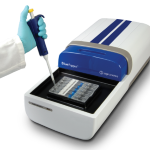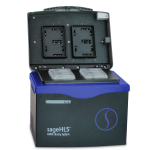March 2025
Authors:
Xin Liu, Lu Liu, Hai-Fei Yan, Xue-Jun Ge, Hui-Run Huang
Abstract:
“Capsella is a model genus for studying polyploid speciation and mating system transitions. Here, we report a subgenome-resolved telomere-to-telomere reference genome of Capsella bursa-pastoris, the only polyploid species in the genus, generated by incorporating PacBio HiFi reads, Nanopore ultra-long reads, and Hi-C data. The assembled genome, named Cbp_T2T, consisted of 16 chromosomes, with 8 in each of the two subgenomes. The genome size of the final assembly was 330.91 Mb. Multiple evaluation methods confirmed the contiguity (contig N50: 20.28 Mb), completeness (Benchmarking Universal Single – Copy Orthologue: 98.70%), and accuracy (QV: 35.76) of the genome. Repetitive sequences accounted for 37.04% of the genome size. In total, 27,626 and 28,096 protein-coding genes were annotated in the two subgenomes, respectively. Large structural variants were observed between the two subgenomes. Additionally, two large inversions on chromosomes 6 and 7, spanning approximately 1.93 and 2.33 Mb, respectively, were detected by comparing Cbp_T2T to a previously published chromosome-scale C. bursa-pastoris assembly. This high-quality reference genome will facilitate evolutionary biological and functional genomic studies in Capsella species.”
Sage Science Products:
SageHLS was used to size select HMW DNA.
Methods Excerpt:
“Approximately 8–10 μg of DNA was size-selected (>50 kb) with the SageHLS High Molecular Weight library system (Sage Science, USA) and used for library construction with the Oxford Nanopore SQK-LSK109 Kit following the manufacturers’ instructions.”
Author Affiliations:
Key Laboratory of National Forestry and Grassland Administration on Plant Conservation and Utilization in Southern China, South China Botanical Garden, Chinese Academy of Sciences, Guangzhou, China
South China National Botanical Garden, Guangzhou, China3University of Chinese Academy of Sciences, Beijing, China
State Key Laboratory of Biocontrol, Guangdong Provincial Key Laboratory of Plant Stress Biology, School of Life Sciences, Sun Yat-sen University, Guangzhou, China
State Key Laboratory of Plant Diversity and Specialty Crops, South China Botanical Garden, Chinese Academy of Sciences, Guangzhou, China
Biological Diversity
DOI: 10.1002/bod2.70001





